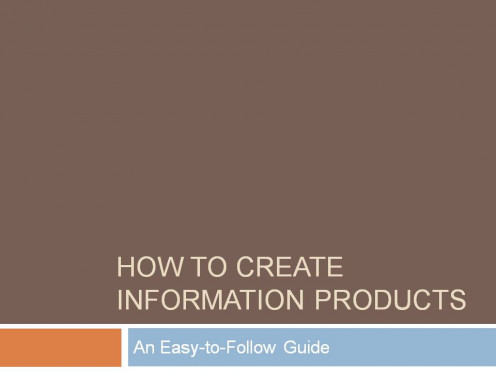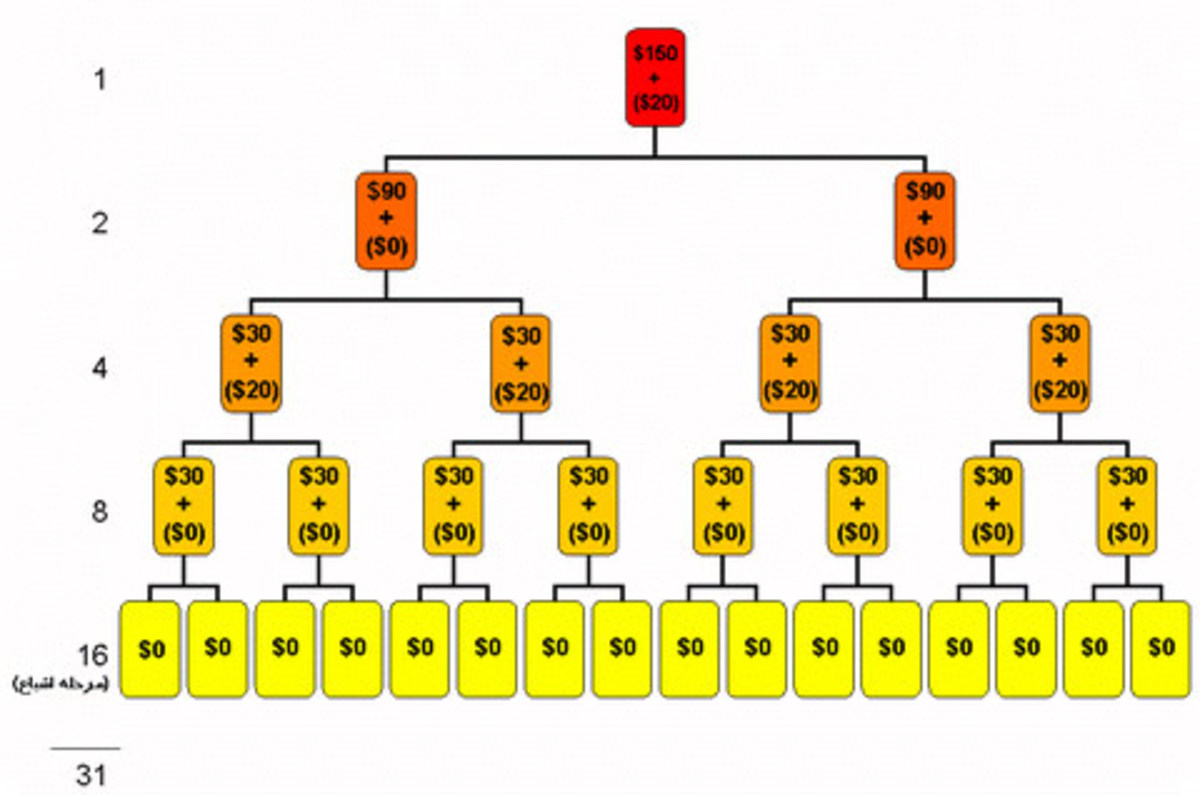How to Create Information Products
Book Cover

Creating Information Products
In a previous Hub I talked about "information products". I briefly went into their definition and some mediums they are marketed in. This Hub will get into more detail on how to create them.
A quick re-cap on the types of information products available (as mentioned in previous Hub):
- e-books
- workbooks
- CDs
- DVDs
- MP3s
- YouTube Videos (not previously mentioned, but becoming a very common one)
- workshops
- seminars
Creating information products can be accomplished by almost anyone, provided they have a good grasp on the subject matter. They do not necessarily have to be professional writers, as long as they can get the point across in an easy to understand format. (For those who have English as their second language, I highly recommend an editor.)
For me writing comes easy, as does proper spelling, punctuation, grammar and sentence structure. Having these attributes makes the task much easier for me. I do not portray perfection, but being as error-free as possible adds to a writer's credibility.
Product Poll
What type of information products have you created?
What types of products should I create?
This is one of the first questions that pops into mind. People want to start writing, but then they often become overwhelmed and do not know where to start. If this happens to you, take a deep breath, step back and get your pen and paper. Answer the following questions to the best of your ability and you will be on your way to creating products.
- What do you enjoy doing?
- Where have you been in the last week? Month? Six months? Year?
- Who have you attended seminars or workshops with?
- When did you first consider writing as a career?
- Why do you enjoy writing? Crafting? Mechanics?
- How did you build the gazebo in your garden?
Answering the Who, What, Why, When, Where and How is often enough to get the creativity flowing. I understand the above questions may not apply to you personally, but with a little thought and substitution of scenarios and words you will soon be on your way to making an extensive list.
Once the list has some topics added, it is time to decide what the best medium will be for your information product. Will it be an e-book? YouTube video? PowerPoint presentation? Or perhaps you have enough information to compile material for a workshop or seminar in your niche?
What is the best medium to use?
When it comes to information products, there is no "best" medium. An eBook will work nicely for someone who would prefer to read at their own pace, while a workshop with an accompanying workbook will work better for someone who prefers the 'hands-on" approach. Below is a the list of mediums with a brief explanation of each.
- eBooks/books - this is the most common type of information medium, as it is readily available and very portable
- Workbooks - these usually summarize the materials covered during a workshop or seminar
- CDs - an audio CD of a previous workshop, seminar or class
- DVDs - a video product recorded demonstrating how to do something. For example, the steps required to making a raised garden bed.
- MP3s - an audio file which may be purchased and received via email describing the best way to give a speech (for example)
- YouTube videos - this is fast-becoming one of the more popular routes information creators take. It combines video and audio to explain how to build a back yard fire pit (for example)
- Workshops - usually held in a morning or afternoon, these command a higher price as attendees can interact with the consultant, author or expert face to face
- Seminars - these are often held over the course of a weekend, and provide attendees with valuable information. The cost is considerably higher as meals, accommodations and some refreshments are provided.
The above list does vary in pricing simply because of your availability to the reader/attendee. For any live class, workshop or seminar, there is often the potential to earn extra income by simply having niche/seminar related e-books, CDs or DVDs available for "back of the room" sales at the end of the session. Workbooks are often included in the cost of registration, but attendees often want to purchase a copy of the expert's book or other literature. They have paid a high price to attend the exclusive seminar, so often want to purchase additional resources so they have a future reference.
There is no "best" type of information product as each situation is different, and commands a different resource. Having a variety available will increase your credibility and your revenue. Not everyone has a CD player, or wishes to be tied to a book when they can simply put a digital audio file on their MP3 player and go for a jog.
Guide to Self-Publishing
Workshop Example - Self-Publishing
Imagine you have just attended one of the best workshops about self-publishing in your life. You are hyped up about getting your book out to the public, and are referring to the literature package you came home with. Not only does it include a the workbook you followed along during the workshop, but it also includes resources for self-publishing companies and websites.
The author of the book you have in hand (and speaker at the workshop) has taken the information she created and developed several products to encourage "back of the room sales". Not only has she provided you with a wealth of information, she answered questions and included some of her best work as well. In addition to the workshop material, you also learned she is an avid traveler. As an extra bonus, she provided a coupon to workshop attendees to purchase her travel guide for a fraction of the regular price.
This is just one way to increase sales of information products. Once you have your readers/followers trusting you, you'll have them eating out of your hand. It will no longer matter if the sideline products are not directly related to the main product or service, as long as the same quality and customer support is there. Just as people have many interests, speakers often have many options available for workshop attendees.









